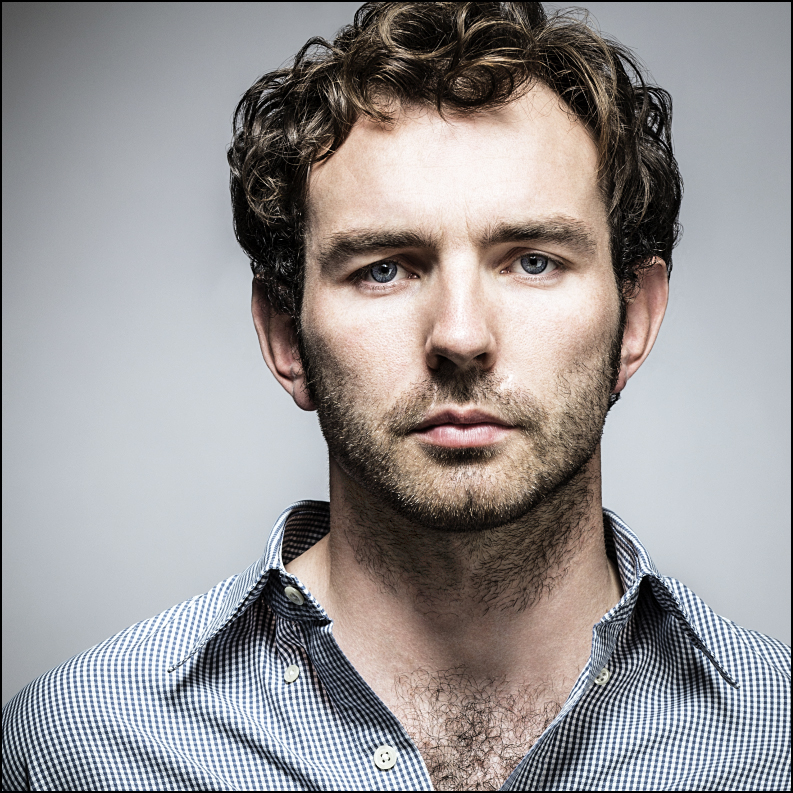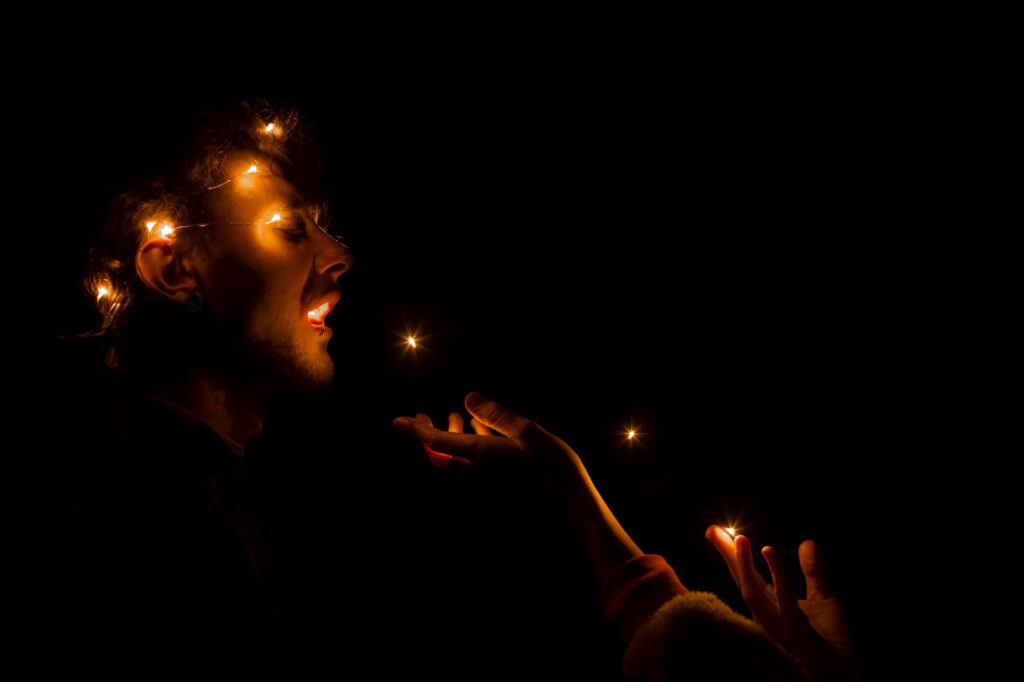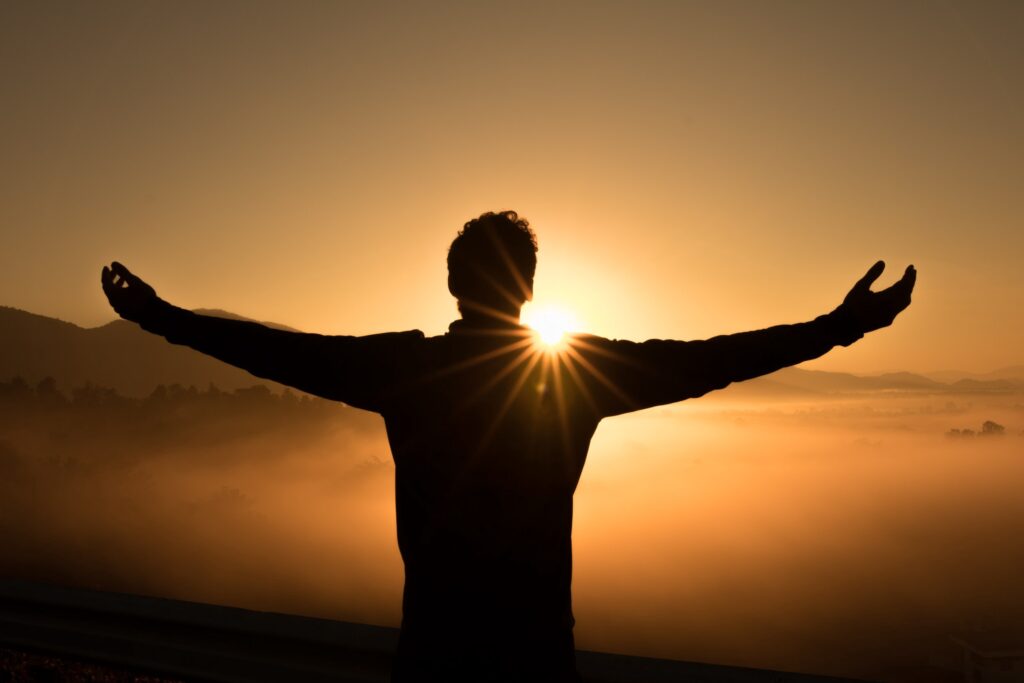
By Tom Lancaster
It’s the moment before the big race. You’re just before the crux move on the hardest climbing route you’ve ever done. You’re just about to ask him out on a date, or her for an investment in your idea. And there it is. That feeling in the pit of your stomach. It shows up like clockwork every time you reach your edge. The outer limit of your comfort zone. Suddenly the voices in your head start singing their melancholy tune — it’s not safe, you’re better off staying where you are, you should just quit now before anyone realises what a massive fraud you are…and you have a choice. Do I stay or do I go?
I recently attended a nine day intensive with some of the most powerful coaches on the planet. It was a life changing experience for me. During the intensive, I was given a book by Osho entitled ‘Courage’, and challenged to write about 5 things that scare me.
1. Writing

As I start to think about what that list might look like, and what I might say, I can hear the voices revving their engines, the comfort zone alarm system blares, and all I want to do is not this. Anything but this. Even coming up with a list scares me. Why don’t I just put netflix on instead, maybe an idea will come?
But I have learned that what sounds, smells and tastes like fear is just the programming of millennia. It’s the source code that hasn’t changed since the time of sabre tooth tigers, when staying safe was of paramount importance. Back then, taking a risk, stepping into the unknown quite literally meant death. And so over the course of evolution, we have become programmed to remember every negative experience we have, and to be fearful, anxious, apprehensive. And while we can’t edit the source code, we can write programs to work with it, and the way we do that is by going THROUGH the fear, not backing away from it, trying to go around it, or waiting for it to disappear.
Over the years I’ve become very comfortable being uncomfortable in the great outdoors. I’ve learned to constantly test my limit, and in doing so I have learned so much about myself and the world. Writing, however, is a new frontier for me. Writing anything still scares me. Being seen, making myself visible for anything other than either a physical feat or a comical fancy dress costume scares the shit out of me. Who am I to talk about fear? About vulnerability? About the power of adventure to radically shift our perceptions of who we are and what we are capable of? Well, I’m me, I’m leaning into my fear, and here are 4 more things that scare me.
2. The Neuroscience of Adventure

I know that adventure, stepping out of your comfort zone and into the unknown, into uncharted territory, is a powerful thing. Everybody who has been on an adventure understands the paradox of having what at the time feels like a miserable experience, only to look back on it as one of the best experiences of your life. To stare your own mortality in the face and discover things about yourself in the process that you cannot find out any other way. It is in these moments that we come alive.
I have experienced the transformational effects of adventure, clients have experienced the transformational effect of adventure. Friends have experienced it.
And yet I know precious little about the biochemical, neurological reasons for it. Just today I learned that the brain responds 50% more favourably to experiences where the result is unknown, which makes total sense to me…at least I think that was the thing I learned…but to take that into the writing arena scares me, because I don’t yet know much about it.
I know that experiences of awe make us more humble, more satisfied with our lives, less materialistic, more generous and more connected. I know that pushing through the limiting beliefs of “I can’t,” “I’m not strong enough,” “What if…?” increases our self-belief, our self-worth, and our vision of what is possible. I know that in those peak experiences, while swimming in that delicious soup of adrenaline, cortisol, dopamine and serotonin, we access flow state, where time slows down, our senses are heightened, and we truly experience what it means to be ‘in the moment’. But as I write this I’m googling everything just to double check…what ARE the neurotransmitters involved in peak performance experiences? What ARE the scientifically backed results of experiencing awe? And as I write and google and google and write, those voices are screaming WHAT ARE YOU DOING?! THIS ISN’T SAFE. YOU ARE GOING TO DIE.
And I’m doing it anyway.
3. My imagination (or lack of)

A huge part of what I do in my work is help my clients to imagine their dream life. How do they show up, where do they hang out, what do they wear when they have achieved whatever it is that they are looking for — business success, relationship success, purpose or meaning…and I’m really good at it.
At the same time, whenever I am put on the spot — asked to answer a deep question about myself, give an example to illustrate a story, or come up with a list of 5 things that scares me, I freeze. My imagination goes into lockdown. And I feel like a fraud.
How is it that I can guide people through deep visualisation meditations, and coach people through the most challenging physical experiences of their lives, yet when the mirror is turned back towards me all I see is a deep black void?
One thing that came out of this intensive for me is that it is ok. It takes me time to process a question or idea, and what comes out at the other end of that processing is usually wise, and often profound. So while I feel like I’m doing it wrong and missing out on the experiences that everyone else in the group is having, it’s comforting to know that there is no wrong, and that my experience is perfect just the way it is.
4. I don't know what I'm doing

Stick with me here. Putting this one out there is nothing short of terrifying, but I am certain that almost everyone reading will be able to empathise. I will never forget a conversation with my mum in my early 20s, recently graduated and terrified of the ‘real world’. At the time she was the regional GM for the Middle East and North Africa of Hill and Knowlton, one of the world’s biggest PR firms. She said to me that she goes into the office everyday waiting to get ‘found out’. It was the first time I’d really heard of imposter syndrome, and that conversation has stuck with me ever since. If SHE feels like a fraud, the I have nothing to worry about!
But here’s the thing. 15 years later, I’m playing a big game too. And every day, I’m convinced I’ll get found out. I’m charging a significant amount of money for my services. I’m changing people’s lives. I have no formal training or certification. I’m making it up. One of my mentors, has a phrase;
Don’t get rid of imposter syndrome, get good at it – Rich Litvin
Imposter syndrome, that feeling in the pit of your stomach with it’s melancholy voice, is a guide that can lead you to greatness, or steer you back into the familiar. I heard about it like this the other day – possibility and fear are two sides of the same balloon. The more the possibility, the more the fear. And you can’t just blow up half the balloon. I have Adam Quiney to thank for that metaphor. For me, the imposter shows up screaming “YOU HAVE NO CLUE WHAT YOU ARE DOING”, when the truth is, I have been doing this my entire life, and I’m REALLY good at it. So every day I tell those butterflies to get their shit together and start flying in formation towards my greatness.
5. Success

There, I said it.
I remember in geography at school learning about the different types of transportation in a river. Solution, Suspension, Saltation and Traction. I have lived the majority of my life in saltation, bouncing along the bottom of the riverbed, existing in the feast/famine cycle, being pretty good at what I do but lounging in feelings of fraud (See point 4). Knowing that I had something great inside me that wanted to get out but didn’t have a voice, and so collapsing back into depression, dependence, and fear.
Every time things would start to look up, I would do something to sabotage it. Move to a different country was a good one for me. It’s so backwards but going on a physical adventure to a far flung part of the world was safer and easier than staying in one place for long enough to have any kind of stability, security or success.
So as I finally step into this role I have always been meant to play as a thought leader, I am scared that success will change me somehow, that I will become some kind of tyrant like we in hear so many stories. But what I have come to learn is that success in and of itself is not what corrupts. Nor power, nor money. These things simply reveal who we have always been, our true nature. And I’m pretty confident that my true nature can handle it.
So what next?
Well that brings me to the sixth thing on this list that scares me. A mastermind that touches on all of the points above. Curtis and I are putting together a small group of extraordinary Adventure Conscious Entrepreneurs, who want to lean into fear, learn about the neuroscience of adventure, and bring the spirit of adventure into everything they do in life. To fully step into their power as leaders, as entrepreneurs, as humans.
It’s called The Zenith Project, and it’s going to be awesome.
If this sounds like a group you’d like to play in, let’s talk. If you’re about to embark on an adventure — in business, in relationship, or in the wilderness, let’s talk. If you’ve had to face your fears on adventures and you want to understand and integrate those experiences powerfully into your life, let’s talk. If you are ready to train those butterflies to fly in formation, let’s talk. Are you ready to rise to meet your zenith?
www.vortexstrategy.com/zenithproject
If you enjoy my articles, then you’ll enjoy the Podcast Curtis and I do every week. It’s called The Adventure Effect Live, and we go deep with our amazing guests on the impact adventure has had on their lives. You can check it out on YouTube, Spotify, iTunes and all the other podcast platforms.
Join our LinkedIn group, Adventure Conscious Entrepreneurs
Or if facebook is your jam, join us in The Adventure Effect group
